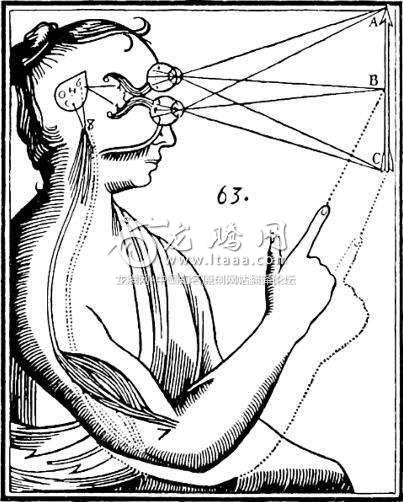信仰自由意志背后的心理学 [美国媒体]
从咖啡桌上做做摆设的书籍以及社交媒体,到热门的科学讲座,似乎对神经学家、哲学家和其他评论家来说,告诉任何愿意听的人自由意志是个谎言,变得越发流行了。
The psychology of believing in free wil
信仰自由意志背后的心理学
From coffee table books and social media topopular science lectures, it seems it has has become increasing fashionable forneuroscientists, philosophers and other commentators to tell anyone that willlisten that free will is a myth.
从咖啡桌上做做摆设的书籍以及社交媒体,到热门的科学讲座,似乎对神经学家、哲学家和其他评论家来说,告诉任何愿意听的人自由意志是个谎言,变得越发流行了。
But why is this debate relevant to anyonebut a philosophy student keen to impress a potential date? Actually, a growingbody of evidence from psychology suggests belief in free will mattersenormously for our behaviour. It is also becoming clear that how we talk aboutfree will affect whether we believe in it.
事实上,越来越多来自心理学的证据表明:相信自由意志,对我们的行为关系重大。也变得越来越清楚的是:我们如何谈论自由意志影响我们是否会信仰它。
In the lab, using deterministic argumentsto undermine people’s belief in free will has led to a number of negativeoutcomes including increased cheating and aggression. It has also been linkedto a reduction in helping behaviours and lowered feelings of gratitude.
在实验室中,通过使用宿命论来破坏人们对自由意志的信仰,会导致许多负面的结果,包括欺骗和攻击性行为。助人行为的减少和感激之情的减弱也与之有联系。
A recent study showed that it is possibleto diminish people’s belief in free will by simply making them read a sciencearticle suggesting that everything is predetermined. This made theparticipants’ less willing to donate to charitable causes (compared to acontrol group). This was only observed in non-religious participants, however.
新近的一个研究表明:削弱人们对自由意志的信仰是有可能的,只需要让他们读一篇主张一切都是注定的科学文章。这会让参与者变得不太情愿去为慈善事业捐献(相较于对照组)。然而,这种结果只能在不信教的参与者那里被观察到。
Scientists argue that these outcomes may bethe result of a diminished sense of agency and control that comes withbelieving that we are free to make choices. Similarly, we may also feel lessmoral responsibility for the outcomes of our actions.
科学家认为,这些结果可能是能动性和控制的感觉被削弱的结果,伴随这两者而生的,是我们有做选择的自由这种坚信。类似地,对于我们行为的结果,我们可能也会感受到更少的道德责任。
It may therefore be unsurprising that somestudies have shown that people who believe in free will are more likely to havepositive life outcomes – such as happiness, academic success and better workperformance . However, the relationship between free will belief and lifeoutcomes may be complex so this association is still debated.
因此,一些研究已经显示出信仰自由意志的人会更有可能拥有积极的人生结果就并不令人惊讶了,比如,幸福、学术成就和更好的工作表现。然而,信仰自由意志与人生结果之间的关系可能是复杂的,所以此处的关联仍然可以讨论。
Disturbing dualism
令人不安的二元论
Language and definitions seem linked towhether we believe in free will. Those who refute the existence of free willtypically refer to a philosophical definition of free will as an ability of ourconsciousness (or soul) to make any decision it chooses – regardless of brainprocesses or preceding causal events. To undermine it, they often couple itwith the “determinism” of classical physics. Newton’s laws of physics simplydon’t allow for free will to exist – once a physical system is set in motion,it follows a completely predictable path.
似乎语言和定义关乎我们是否信仰自由意志。那些反驳自由意志存在的人会很有代表性地提及自由意志在哲学上的定义,即不考虑大脑的作用或之前的因果,我们的意识(或灵魂)作出任何它自选的决定之能力。为了削弱它,他们常会结合经典物理的“决定论”。牛顿的物理法则完全不允许自由意志的存在,一套物理系统一旦开始运作,它便会循着一条完全可预测的道路走。
According to fundamental physics,everything that happens in the universe is encoded in its initial conditions.From the Big Bang onward, mechanical cause-and-effect interactions of atomsformed stars, planets, life and eventually your DNA and your brain. It wasinevitable. Your physical brain was therefore always destined to processinformation exactly as does, so every decision that you are ever going to makeis predetermined. You (your consciousness) are a mere bystander – your brain isin charge of you. Therefore you have no free will. This argument is known asdeterminism.
根据基础物理学,任何发生在宇宙中的事都是先决于其初始条件。从大爆炸之前,原子间无意识的因果交互产生了恒星、行星、生命,最终形成了你的DNA和大脑。这是不可避免的。因此,你生物上的大脑注定要去恰如其分地处理信息,所以你打算作出的每一个决定都是预先确定的。你(你的意识)仅仅是旁观者,是你的大脑在掌管你。因此你并不拥有自由意志。这样的论证被称为决定论。
Descartes mind and body: Inputs are passedon by the sensory organs to the epiphysis in the brain and from there to theimmaterial spirit. Wikipedia
(图解:笛卡尔笔下的身心:输入的信号由感觉器官传递到大脑中的松果体,并从那里进入非物质的精神)
But this approach is absurdly dualistic,requiring people to see their consciousness as their true self and their brainas something separate. Despite being an accurate description of thephilosophical definition of free will, this flies in the face of what ordinarypeople – and many scientists – actually believe.
但这个方法非黑即白到了荒谬的程度,要求人们将其意识看成他们真正的自我,并将大脑看成被隔开的独立存在。尽管是对自由意志哲学定义的准确描述,它却罔顾了普通人和许多科学家真实的信仰。
In reality it seems that the functioning ofour brain actually affects our consciousness. Most of us can recognise, withoutexistential angst, that drinking alcohol, which impacts our physical brain,subsequently diminishes our capacity to make rational choices in a manner thatour consciousness is powerless to simply override. In fact, we tend to be ableto accept that our consciousness is the product of our physical brain, whichremoves dualism. It is not that our brains make decisions for us, rather wemake our decisions with our brains.
实际上,我们的脑功能似乎真的影响到了我们的意识。我们中的大部分人能分辨出,在不存在焦虑的情况下,饮酒影响了我们的生物大脑,饮酒后会削弱我们做出理性选择的能力,以一种我们的意识无力左右的方式。事实上,我们有能够接受意识是生物大脑产物的倾向,而这摆脱了二元论。并不是我们的大脑替我们做决定,而是我们用大脑来作出我们的决定。
Most people define free will as simplytheir capacity to make choices that fulfil their desires – free fromconstraints. This lay understanding of free will doesn’t really involvearguments about deterministic causation stretching back to the Big Bang.
大部分人把自由意志简单地定义为:摆脱束缚,作出选择以满足他们欲望的能力。这就使得对自由意志的理解没能真正地包含可以回溯到大爆炸的对于宿命论因果关系的争论。
But how could we learn about the argumentsfor and against the existence of free will without feeling threatened andhaving our moral judgement undermined? One way could be to re-express validdeterministic arguments in language that people actually use.
但是我们要怎样才能了解支持或反对自由意志存在的论据,而不会感觉受到恐吓乃至破坏我们的道德判断呢?有个办法可以用人们日常实际使用的语言来重新有效地表达对宿命论的论证。
For example, when the determinist arguesthat “cause-and-effect interactions since the Big Bang fashioned the universeand your brain in a way that has made your every decision inevitable”, we couldreplace it with more familiar language. For example, “your family inheritanceand life experience made you the person you are by forming your brain andmind”.
举例来说,当宿命论者主张“自大爆炸使宇宙成形后的因果交互,而且你的大脑以某种方式不可避免地作出了你的每个决定”,我们可以用更熟悉的语言来替代它。比如,“你的家族遗传和人生体验塑造了你的大脑和心灵,使你成为了你这样的人”。
In my view, both arguments are equallydeterministic – “family inheritance” is another way of saying DNA while “lifeexperiences” is a less challenging way of saying prior causal events. But,importantly, the latter allows for a greater feeling of freedom, potentiallyreducing any possible negative impacts on behaviour.
依我之见,两种主张都是同等的宿命论— “家族遗传”是DNA的另一种说法,而“人生体验”则是前因后果的一种不那么有挑战性的说法。但重要的是,后者考虑到了更大的自由感,潜在地降低了任何可能对行为产生的负面影响。
Quantum weirdness
量子的怪诞性
Some even argue that the notion ofscientific determinism is being challenged by the rise of quantum mechanics,which governs the micro world of atoms and particles. According to quantummechanics, you cannot predict with certainty what route a particle will take toreach a target – even if you know all its initial conditions. All you can do isto calculate a probability, which implies that nature is a lot less predictablethan we thought. In fact, it is only when you actually measure a particle’spath that it “picks” a specific trajectory – until then it can take severalroutes at once.
有些人甚至主张,符合科学的决定论正受到兴起中的量子力学的挑战,量子力学统御着原子和粒子的微观世界。按照量子力学理论,你无法确定地预测一个粒子会走什么路线到达目标,哪怕你知道它所有的初始条件。你能做的全部是去计算机率,这就暗示着,自然的可预测性比我们想象的要低得多。事实上,只有你真的去测量一个粒子“拣选”的特定轨道才行,在那之前它一次可选定若干条路线。
While quantum effects such as these tend todisappear on the scale of people and everyday objects, it has recently beenshown that they may play a role in some biological processes, ranging fromphotosynthesis to bird navigation. So far we have no evidence that they playany role in the human brain – but, of course, that’s not to say they don’t.
虽然如此这般的量子效应往往会在人和日常物体的规模上消失,但已经在最近发现:它们可能在一些生物进程中发挥着作用,范围从光合作用到鸟类的导航系统。到目前为止,我们还没有证据表明它们能在人类大脑中发挥任何作用,但是当然,这不是说它们就不会。
People using a philosophical definition andclassical physics may argue convincingly against the existence of free will.However, they may want to note that modern physics does not necessarily agreethat free will is impossible.
使用哲学定义和经典物理的人可能会以令人信服的方式驳斥自由意志的存在。然而他们也许应该注意到,现代物理学不一定会同意自由意志是不可能的。
Ultimately, whether free will exists or notmay depend on your definition. If you wish to deny its existence, you should doso responsibly by first defining the concepts clearly. And be aware that thismay affect your life a lot more than you think.
根本上说,自由意志存在与否也许要取决于你的定义。如果你想要否认其存在,你应当负责任地先去清楚定义下这些概念。而且要了解,它影响你人生的程度,可能比你想象的深得多。
版权声明
我们致力于传递世界各地老百姓最真实、最直接、最详尽的对中国的看法
【版权与免责声明】如发现内容存在版权问题,烦请提供相关信息发邮件,
我们将及时沟通与处理。本站内容除非来源注明五毛网,否则均为网友转载,涉及言论、版权与本站无关。
本文仅代表作者观点,不代表本站立场。
本文来自网络,如有侵权及时联系本网站。
图文文章RECOMMEND
热门文章HOT NEWS
-
1
Why do most people who have a positive view of China have been to ...
- 2
- 3
- 4
- 5
- 6
- 7
- 8
- 9
- 10
推荐文章HOT NEWS
-
1
Why do most people who have a positive view of China have been to ...
- 2
- 3
- 4
- 5
- 6
- 7
- 8
- 9
- 10












